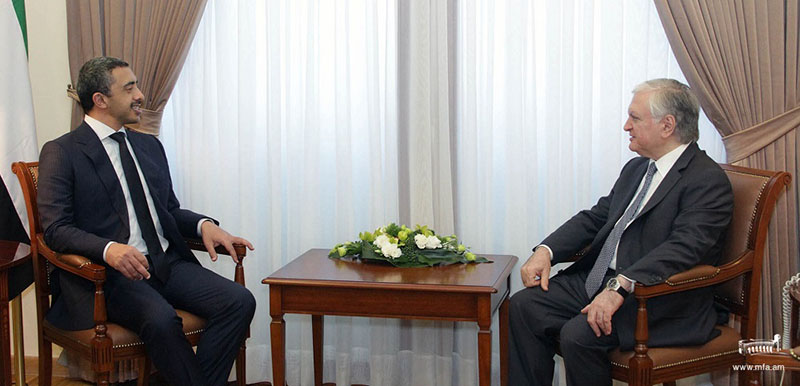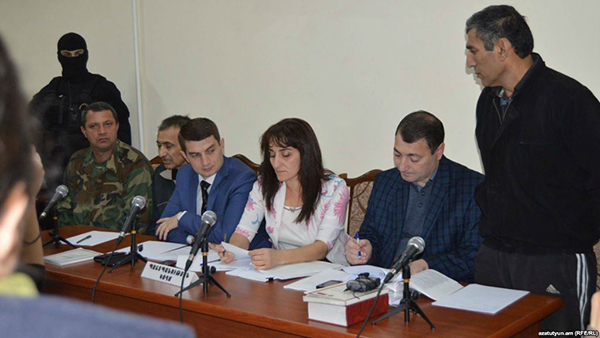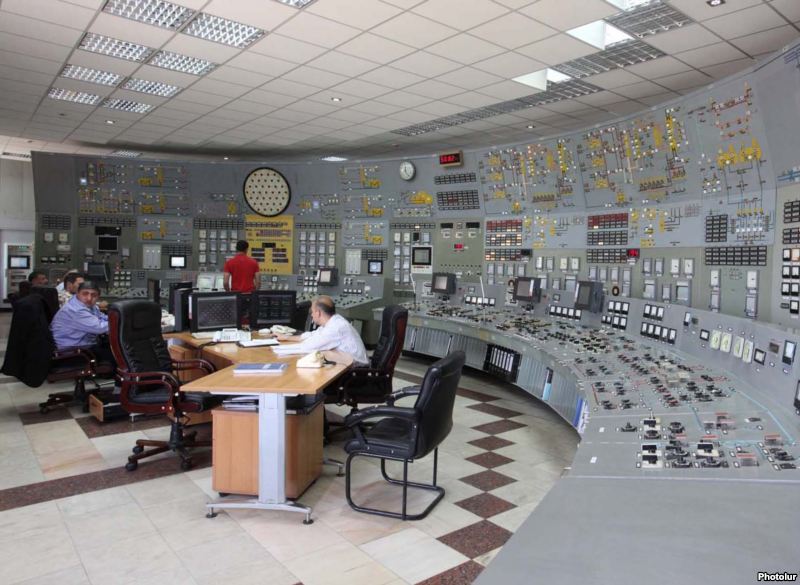Our article is an attempt to untangle the information chaos that was unleashed by Russian troops invading Ukraine. To do this, as a subtext, we found it convenient to cite three quotes from articles we wrote about two years ago.
- In our article “Nationalism and Globalization” published in the January 4, 2020 issue of “Massis”, we wrote that “We are in the process of the formation of a new world order and if we as a nation do not orient correctly, the consequences can be catastrophic. … The fall of the Berlin Wall (1989), the reunification of the two Germanys (1990), as well as the collapse of the Soviet Union (1991) can be considered the starting point for the process of creating a new world order, one of the results of which was the newly independent Republic of Armenia.” Then, giving a brief analysis of the most important events in the world history of the past 2000 years and their impact on our nation, we wrote that the great powers pursue ambitious goals to expand their sphere of influence and dominate over other nations through “military, telecommunication, economic and other means. To accomplish their goals, they create “controllable” outbreaks around the world. But if the “controllable” suddenly breaks out of control, there is a high probability that it will trigger the outbreak of World War III. We are all aware of the terrible damage we suffered during the First and Second World Wars. Therefore, we must be seriously concerned about the possible consequences of the third and be prepared accordingly. “
- Later in that year, when the Artsakh war was in progress, we published our article “US Presidential Election and the Artsakh Liberation War” in the October 24, 2020 issue of “Massis” in which we wrote: “It is also a visible phenomenon that the formation of this new world order is not going in the favorable direction of the United States and therefore threatens to limit the domination it enjoys. It is not Russia that is threatening and violating the existing world status quo, but China, which has made tremendous progress in recent decades, with its unique hybrid authoritarian regime that is a mix of capitalist and communist theories. In our humble opinion, Trump’s seemingly unbelievable 2016 election was an attempt to destabilize the world and to find new ways out of the turmoil that could maintain US dominance.”
- In our article “Armenian-Russian Relations and the Artsakh Liberation War” published in the October 31, 2020 issue of “Massis”, we wrote: “We think that Turkey, with the “blessing” of the United States, unleashed this war with the aim of creating instability for Russia and Iran, which will benefit them, as well as Israel. … Has Russia lost its former monopoly to impose its will on its traditional sphere of influence? Are its internal and external problems an obstacle to its unhampered operation in the region? Where is the red-line that will force Russia to take more drastic measures to protect its vital interests?”
Apparently, Ukraine was that red-line. But in order not to get carried away by superficial misinformation, let’s try to understand how this crisis matured. So, let’s go back to the Berlin Wall mentioned at the beginning of this article, the reunification of Germany and the collapse of the Soviet Union, which we considered the starting point for the formation of a new world order. Let us recall that in 1985 the Secretary General of the USSR Mikhail Gorbachev began his Reconstruction Process (Perestroika / Glasnost). He reached an agreement with then US Secretary of State James Baker and West German Foreign Minister Hans-Dietrich Genscher (with the tacit approval of Britain and France) that he would approve German reunification, provided NATO does not extend its sphere of influence over eastern Europe. But barely a decade later, in 1999 and then in 2004, the United States not only violated that agreement but, moreover, made 14 newly independent Eastern European countries members of NATO. Not content with that, the United States pushed Georgia into a confrontation with Russia in 2008, as a result of which Russia took control of Abkhazia and Ossetia. Not content with that, the United States also broke the promise made by President Clinton that NATO would not deploy troops in those countries, doing so in the Baltic states (2014) and Poland (2017). Finally in 2014, at the instigation of the United States, a “color” revolution broke in Ukraine, resulting in the pro-Russian Ukrainian President Yanukovych seeking refuge in Russia, which responded by annexing the Crimean Peninsula.
As you can see, it is the United States that is always trying to spread its sphere of influence, even violating the agreements it has made. Since 1823, the United States has proclaimed the Monroe Doctrine, declaring the Western Hemisphere its sphere of influence (North, Central, and even South America). That is why in 1962 it did not tolerate the deployment of Soviet missiles in Cuba, and the world was terrified of the possibility of a world war. That is why in 1973 it did not tolerate even the democratically elected president of Chile, Salvatore Allende, organizing his assassination and replacing him with its fall guy, Augusto Pinochet. So, is it not to be expected that when the United States establishes its fall guy in Ukraine, which is bordered by Russia and is partly Russian, Russia will also retaliate for its own security interests?
Unfortunately, in this game of big powers, it’s the little ones that fall victim and suffer terrible damages. It is also unfortunate that the big ones, in order to carry out their plans, always manage to nurture their agents and fall guys in a given country and bring them to power, always under the veil of reform. And when those accomplices are no longer needed, they get rid of them, as was the case with Mohammad Reza Pahlavi, Saddam Hussein, Muammar Gaddafi, and so on. There is a long list of small states that have been sacrificed and destroyed only in the last few decades, starting from the Middle East (Iraq, Syria, Libya, Yemen), passing through Africa (Somalia, Libya), Central Asia (Afghanistan), Eastern Europe (Serbia, Bosnia, Kosovo) to reach Armenia and Ukraine.
Considering all the above, President Eisenhower’s horrific warning in his farewell address on January 17, 1961, comes into mind. He regarded the close relationship of the U.S. Military and the giant corporations that built its weapons as a threat to our democracy. As a general who had witnessed the horrors and devastation of World War II, he warned us of the devastation that would come with a union between a military establishment (army) and an ammunition production industry. It is this union, the so-called “casus belli”, which is creating conflicts around the world, always and only pursuing its own interests. President Eisenhower’s warning will be better understood when we consider that since World War II, close to 300 conflicts have taken in the world, and the United States has played a large part in them.
Returning to our assertion that the threat to the current world order does not come from Russia but from China, the question arises as to what is being pursued with this Ukraine-Russia conflict. It is very likely that this conflict is a prototype of the future Taiwan-China conflict, and many lessons could be learned from this one for the planning of that future conflict. It is also possible that the United States is trying to bring about a “color” revolution in Russia itself and to bring Russia under its influence by overthrowing Putin and bringing in a “Yeltsin”, thus strengthening its position in the event of the conflict with China. Aren’t US experts aware that Napoleon and Hitler failed in their endeavors and will not succeed in this case either, because the Russian people will instinctively unite around their leader, even if he is a bloodthirsty Stalin?
Let’s end our thoughts with a question. In light of all this, what should we do? We gave the answer at the end of our article “Nationalism and Globalization” mentioned above. We quote. “We must prioritize the perception of the ‘one for all, all for one’ national collective consciousness, incorporating it into our way of life and daily practice. … Our history has shown us that with our healthy national instinct we have succeeded in “armenianizing” the alien Parthians, Mamikonians and Bagratunis, who have greatly contributed to the eternality of our national march through history. What hinders Armenians living in Armenia and the Diaspora, Eastern Armenians and Western Armenians from contributing to our eternal march with unselfish dedication and joint efforts?”












1 comment
Great and true analysis for the current situation in the light of past. Keep it up